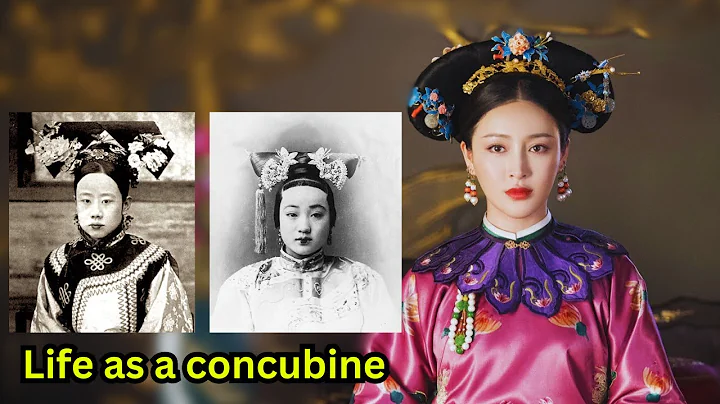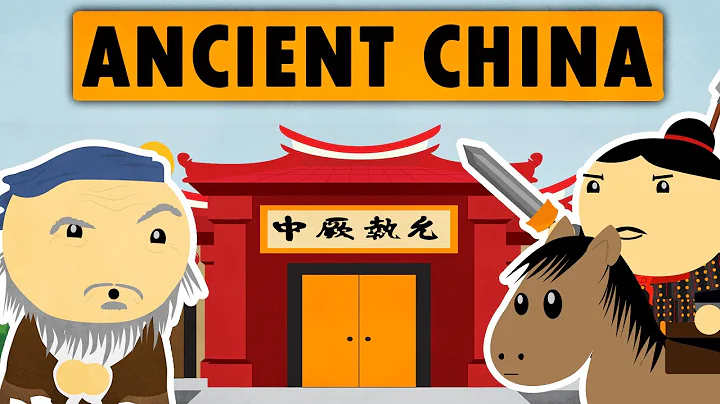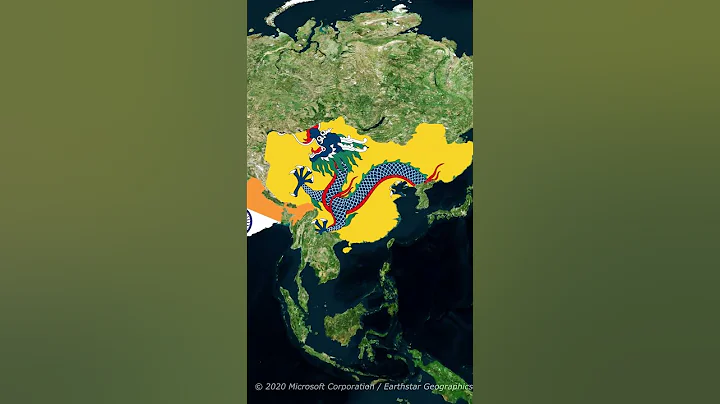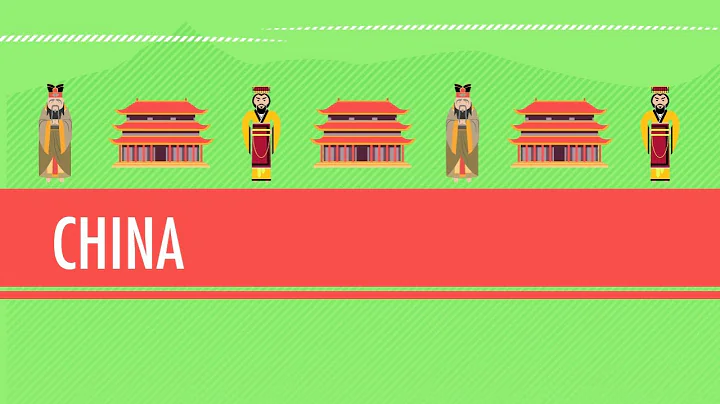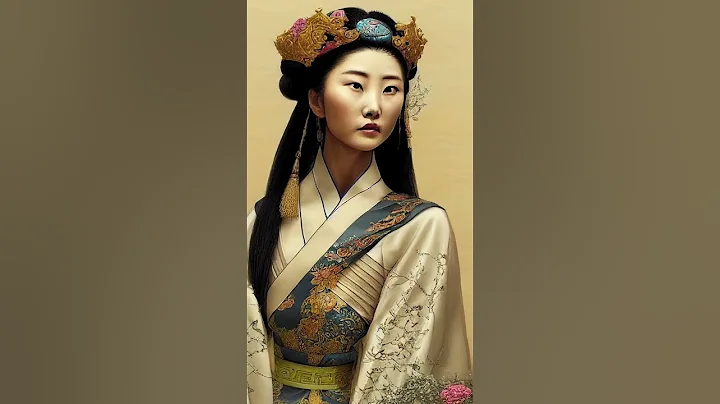
Book title: " Tang Wenzhi Collection (all six volumes)"
Author: Tang Wenzhi
Publisher: Shanghai Ancient Books Publishing House
Publication time: 2019-01-01
[Content introduction]
Mr. Tang Wenzhi is a late Qing Dynasty A famous scholar in the Republic of China and a generation of pure Confucianists, he played a decisive role in the political, academic and educational circles at that time.
Mr. Tang once held important positions in the Ministry of Commerce and the Ministry of Posts and Communications in the late Qing Dynasty, and was familiar with government affairs and foreign affairs. He later served as the principal of Jiaotong University and Wuxi Chinese Studies School. He was proficient in traditional academics and understood the importance of new learning. His writings are all Clear and far-reaching cultural care; advocating "reading scriptures to save the country", kindness, filial piety and benevolence, while preserving the national essence, but also innovating to cultivate elites with noble moral sentiments and cultural abilities; restoring national strength and continuing cultural heritage and orthodoxy.
The Wuxi State Council he founded has trained a large number of famous scholars for China, including Tang Lan, Wang Quchang, Jiang Tianshu, Cao Daoheng, Feng Qiyong, Zhu Dongrun and other outstanding predecessors in the field of contemporary Chinese literature and history. A descendant of the Tang clan; his contribution to the promotion of traditional culture is worth remembering forever.
"Tang Wenzhi Collection·Collection Classification and Compilation" is a complete record of Mr. Tang's many years of political, reading, teaching and life experience. It has great documentary value and academic research significance.
"Tang Wenzhi Collection·Collection Classification, Chronology, Correction and Interpretation" uses the methods of classification, chronology, punctuation and proofreading to systematically organize Mr. Tang's collected works. It is a brand new edition of Mr. Tang's collected works, which basically covers Mr. Tang's life articles. Here it is. The "classification" made by
is based on the original stylistic classification of "Ru Jing Tang Collected Works" and redefined it, classifying nearly a thousand articles into categories. The categories not only mark the types of Mr. Tang’s articles throughout his life, but also imply his academic concepts. For example, the first category of “Jingshuo” is “the purpose of the origin of Taoism. Confucian classics is the foundation of Mr. Tang’s academic work, and his lifelong The spirit of Shushi is also reflected in the writings of Confucian classics, so it is particularly important to Mr. What
calls "Chronology" is to arrange various articles in chronological order, and here we can gain insight into the subtleties of Mr. Tang's thoughts and emotions.
is "proofreading". Firstly, it proofreads Mr. Tang's article according to different versions to provide a credible and reliable text; secondly, it annotates a large number of allusions and characters involved in the article to facilitate readers' reading and use; thirdly, it explains the article. Background information of the writing so that readers can have a deeper understanding of the connotation of Mr. Tang’s article.
The editor of this book has awe and real understanding of the spirit of traditional Chinese culture, and has profound research and sincere recognition of Mr. Tang Wenzhi’s thoughts and cultural values. Therefore, "Tang Wenzhi Collection·Collection Classification and Compilation" is unique in style and carefully organized. It is an essential document for comprehensively understanding and studying the thoughts and spirit of Mr. Tang Wenzhi, a generation of pure Confucian scholars. It is also a guide for entering the special era of the late Qing Dynasty and the early Republic of China. Rare historical materials.
[About the author]
Deng Guoguang was born in Hong Kong in 1955 and his ancestral home is Sanshui, Guangdong. He dropped out of school at a young age due to poverty and completed his secondary education in a part-time night school. In 1978, he was admitted to the Chinese Department of the Chinese University of Hong Kong with excellent results in , where he studied under the tutelage of Professor Su Wenzhuo. He received a master's degree from the Institute of New Asia in Hong Kong under the tutelage of Professor Li Yunguang and . Professor Mou Zongsan and Professor Luo Mengce study ancient literature; he holds a PhD in philosophy from the Chinese Department of the University of Hong Kong and studies ancient literature under the tutelage of Professor Chen Yaonan.
Since 1985, he has served as a part-time lecturer in the Department of Literature and History of New Asia Business College, a part-time lecturer in the Chinese Department of Shue Yan College, an associate professor in the Department of Literature and History and the Institute of Literature and History of Zhuhai College, and a lecturer in the Chinese Department of Baptist College; University of Macau School of Education Vice Dean, Dean of the School of Chinese Language and Literature, and currently Professor of Chinese Literature in the Department of Chinese Language and Literature of the University of Macau. Focusing on the research of Chinese classics and literature, he has published nearly 100 academic works on both sides of the Taiwan Strait and three places.
[Contents]
Preface
Examples
Volume 1
Classics
Memorials
Volume 2
Discussions
Academic Records
Volume 3
Poems
Precepts
Preface and Postscripts
Volume 4
Secretary
Historical Records
Jiacheng
The fifth volume
Biography
Tomb inscription
The sixth volume
Mourning ceremony
Novel
Yingjin's diary
Customized chronology
Appendix 1: Jiangnan Township Examination Paper Imperial Order'Four Books', Poetry Title Renwu 378 1
Appendix 2: Relevant preface and postscript 3789
Appendix 3: Summary and preface to Mr. Tang Weizhi's "Ru Jing Tang Series"
[Preface]
Mr. Tang Ru Jing said: "The method of compiling books is nothing more than the two ends, which is called chronology. , called classification." (Mr. Tang's "Preface to the Micro Development of Ziyang Academics", see this book.) This is Shi Zunya's teaching. Before the road is clear, the mausoleum of benevolence and righteousness will be replaced, and it will not take a day. The gentleman is benevolent, righteous and virtuous, his literature is clear and enlightening, he is aware of the world and the people, he has kind wishes and expresses kindness, which is nothing more than saving the world and loving his people. Mr. Wang’s writings were not lost for a day. Gou Shidao's people's hearts will change day by day, and they will be devoured and lost forever.
Today, we hope that governance will bring prosperity to the people, and since virtue and justice are still there, they will not be left behind in this world. Although the paths are divergent and divergent, human nature is endless, which is enough to remedy the decline and cure the root cause of the disease. This gentleman's writings go through the heaven and the earth, weave through the sun and the moon, and are consistent with morality and clarify human relations. The wish for great harmony is indeed not in vain. He compiled Mr. Wang's articles according to historical categories, classified them chronologically and added annotations. Yan called them "Collected Works of Tang Dynasty Wen Zhi". Therefore, he continued his unique learning to rectify the people's hearts, revealed the holy heart to create peace, and preserved the Tao through writing, which spread to the emperor. This is a compilation, how can you be just a sage!
Mr. Tang (1865-1954), whose name is Wenzhi, was born in Taicang, Jiangsu Province. In the 18th year of the reign of Emperor Guangxu of the Qing Dynasty, Renchen became a Jinshi. He was promoted to the Shangshu of the Shang Dynasty.
Once again, he went through the countries of Europe, America and Japan, examined the gains and losses of governance, and promoted commerce, industry, and education in order to save the country's destiny in times of crisis. Si Dingyou, served as the supervisor of the Shanghai Higher Industrial School. When the Republic of China was founded, it was renamed Nanyang University Hall, and was renamed the Industrial College of the Ministry of Communications and the National Chiao Tung University. He presided over the school administration for thirteen years.
From Gengshen in the ninth year of the Republic of China, he presided over the Wuxi Chinese Studies College, later named Wuxi Chinese Studies College and the private Wuxi Chinese Studies School. He gave lectures in person. Regardless of his teachings and writings, he always adhered to the principle of "rectifying people's hearts and saving people's lives". Shu Shi advocated that there should be no hesitation. The scholars he created will all become leaders in the Chinese humanities in the future. Mr.
has written numerous works, and his academic work can be summed up in one word, "reading the classics to save the country". This "Xingxue" is the body, "Confucian classics" is the use, and "articles" are the key to it. The three have the same origin and coexistence; Based on the conscience and conscience, we are committed to serving the people, and at the foundation of human hearts and culture, we activate the inner motivation for rebirth; we promote the kingly way of grace to achieve the ultimate merit of a saint, and we hope for great unity.
Moreover, living in a time of great suffering and chaos, his "suffering scholarship" and his love for the country and the people are not limited to one family, but are comprehensive. , to recreate the majesty and vitality of Chinese culture.
He is famous in the world without persuading him, and he is criticized by the world without being discouraged. The importance of his self-responsibility is reflected in the awareness, inheritance and development of the "tradition", his deep concern for the people, and his far-sighted vision. It is said that he has to wait for a hundred generations to come. , 'To carry forward the unique knowledge of the past saints and create peace for all generations', Mr. Xi has realized it. A pure Confucian of a generation, he came into contact with the sages. To this day, the recasting of the country’s soul still awaits the light of Mr. Wang’s writings, which is of great significance.
Mr. Ran's works have been handed down from generation to generation, but they were circulated during the period of unrest, and he did not have time to read the full text in person. Many of them have been divulged, and it is quite difficult for future generations to review and study them. As much as possible, we should collect and organize them without delay, otherwise the passage of time will only add to the sorrow of lost documents in the future.
is to sort out Mr. Wang’s posthumous works, first with anthologies, chronology, proofreading and interpretation, and then with four kinds of studies, including Confucian classics, Xingxue, and Articles, to fully present the essence of Mr. Wang’s seventy years of scholarship.Those who do not take the convenient method of photocopying the original book, but would rather spend a lot of energy and time on sorting and cataloging it, because the original printing form is different, if the original version is used to compile the photo, it will be a mistake, and it will only add to the mistakes of the later ones. Fear and misunderstanding. Moreover, each item has many photocopies, so there is no need to worry about overlapping.
was the first to organize the collection. Mr. Tang’s articles store his life’s thoughts and serve as the basis for understanding his academic spirit. The collection also includes all of his thoughts, scholarship, articles, family, teachers and friends, and is essential for studying his academic conduct. It also provides extremely important first-hand information for the study of history, thought, academics, politics, society, culture and education in the late Qing Dynasty, the Republic of China and the founding of the People's Republic of China.
However, the content of "Ru Jing Tang Collected Works" has been circulated in different periods for more than 70 years, and the situation is complicated. Therefore, if you attack the difficult part first and follow the current, Dong Li will be able to make the most of it. Otherwise, it will be fragmented, disorganized, or even distorted and fragmented, which will be very sad. Mr. Kuang cherishes writing and writing very much, and clearly stated that "I have preserved all the writing I have written since I gained knowledge at the age of fifteen or sixteen" (see Mr. Gao's "Preface to the Grades of Gao's Middle School" (1941)), and he started studying at an early age. Nanjing Academy has already compiled a chronicle compiled by Mr. Ru Jing. Ding Hai (1887) at the age of 23 recorded: "In the spring, he still went to Nanjing Academy to study." (Original) In that year, he was more attentive to reading and began to compile the "Collected Works of Ru Jing Tang". ’.
As for the treatment of Mr. Xian's monographs on Confucian classics, sex theory, and article studies, the collected works provide more reliable clues. Therefore, the compilation of the collection of essays is a top priority for all of Mr. Dong Li's academic works. This collection is based on Mr. Ru Jing Tang's Collected Works, Ru Jing Tang Memorials, Zhu Ai Bian, Personality, Political Science, National Supervision, Military Proverbs, National Proverbs, Yue Gou Jian Zhi and Lectures. "Records", "Mr. Ru Jing's Encouragement Novels", "Yingzhen's Diary", "Mr. Ru Jing's Self-made Chronology", etc., supplemented by single articles scattered in newspapers and magazines, all of which were collected during the lifetime of Mr. Zi Xing. Record it, chronologically classify it, revise and interpret it, indicate the source, so that it can be opened and checked. The overall word count of
has exceeded 2 million, and it is basically there. However, it is a hidden gem in the ocean, and a supplement to complete it is also on the schedule. But let’s discuss the general outline first. The key point is Mr. Guangyang’s discussion of studies, discussion of politics, and teaching of people’s feelings. As for the manuscripts of his diaries and letters that were not published at that time, some of Mr. Tang's diaries, letters, and unpublished manuscripts are recorded in "Selected Works of Tang Wenzhi on Education" co-edited by Wang Tongsun and Liu Lucy (Xi'an Jiaotong University Press, 1995) and Wang Tongsun, Hu Bangyan, Feng Junsen and others selected and annotated "Selected Works of Tang Wenzhi" (Shanghai Jiaotong University Press, 2005), and compiled "Tang Wenzhi's Notes to Cao Yuanbi" compiled by Yu Wanli and Xu Chaojie, ( It is published in the 13th series of "Confucian Classics Literature Research Collection" edited by Yu Wanli (Shanghai Bookstore Publishing House, 2015). Although it may be compiled in fragments, if it is not what Mr. Wang wanted to make public at that time, it will be collected and compiled in the future. Supplement. After reviewing and verifying the final text, Mr.
must first sort out the surviving articles. Mr.
is good at the study of articles. The first and second editions of "Ru Jing Tang Collected Works" and "Ru Jing" "Tang Zou Shu" is all hand-written, and the style and classification are carefully arranged and arranged. The division of text is a key factor in the study of articles, but the six volumes of the original "Ru Jing Tang Collected Works" were published. In different periods, the contents have different emphasis according to experience and time. For example, the first part, "Family Vehicle", is not found in the other five parts; the six parts have their own divisions and combinations. Here we will discuss the existing ones. Add order.
Among the various categories, the order is based on age. If it is unique to the "family", the order of honor and inferiority will be followed, and the epitaphs of the deceased family members will be added after the "Part 1" is published. and chronology are the key points of this new collection. As for the proofreading, all six volumes of Mr. Ru Jing Tang's Collected Works are the only ones that have been circulated.
Taipei Wenhai Publishing House published them in 1919. In 1970, the photocopies of "Collected Works of Ru Jing Tang", "Memories of Ru Jing Tang", "Ying Jin's Diary" and "Self-made Chronology" were published in the world; those photocopied and included in "Republic of China Series" are also from the same edition and have not yet been published. There are discrepancies.
However, the Taipei photocopy has obscured part of the content due to contemporary restrictions. It is a pity that the original version of the Republic of China has serious deficiencies. These are noted in the text and supplemented based on the original version. All citations should be checked against the original text one by one and the source should be indicated.
As for the annotations, we use the "Self-made Chronology" for mutual support, or Mr. Tang's self-evaluation in "The Classics and Wefts of Chinese Literature" for reference. We try our best to use Mr. Tang's words for self-support to avoid distortion; the characters and difficult texts involved are also Add annotations.
continues to live and die. Although the rules are regulated, we must examine and distinguish, and those who do not ignore the details will not be used to harm the big. They must be thorough, seek truth from facts, and always aim to preserve the general outline of Mr. Wang's articles. As for the style of the whole book, it is listed in detail in "Fanli".
A comprehensive compilation of Mr. Tang’s works since 2001. Dr. Chen Guoming collected documents in the libraries of various universities and colleges in Hong Kong; Dr. Ouyang Yanhua traveled to libraries and bookstores in Taiwan and South Korea to supplement, update, and input for proofreading; Dr. He Jieying re-collected and edited the documents. They are all morally responsible and work tirelessly, but they fulfill their responsibilities for academic inheritance, which can be appreciated.
In 2008, Mr. Tong Lijun, who was the director of the seventh editorial office of Shanghai Ancient Books Publishing House at that time, was invited to compile Mr. Tong's "Thirteen Classics Readings". He felt that he wanted to compile the complete works, so he added it again. Organized in order to make all of Mr.'s writings available to the public.
As a result of his academic connections, in mid-2014 he received the great assistance of Mr. Chang Derong from the first editorial office of Shanghai Ancient Books Publishing House. He provided a large amount of professional information on his legacy and put the arrangement of his legacy on the agenda. He worked tirelessly. , His pure moral character is commendable for his sincerity; His righteous outlook is deeply admirable. Publication is now available and certain. Then we sincerely invite the best students to join the Board of Directors.
Dr. Zhang Tao worked on the initial work of "Ru Jing Tang Memorial" and "Ying Jin's Diary" in Shanghai, Wu Hao helped the school in Beijing, and Huang Sheng Yaomin, Zhang Sheng Wanying and others assisted. They all devoted themselves sincerely in the cold and summer, regardless of the benefits and losses. Today, In this world where people are eager for quick success and instant benefits, they are really rare, and I sincerely appreciate this. There is no doubt that those who firmly believe that Chinese culture will be greater than the new generation will do so.
Guoguang visited the main school again and again, often forgetting to eat during the day, and staying at his desk at night until the stars started to rise, reviewing the difficulties of the expedition, which cannot be explained in words. However, it is short and deep, and all the inappropriate places are caused by the country's ignorance and ignorance. I just thought that I could support the clear path for my husband, and I thought that it was a generous gift from heaven. I dare not encourage him!
The person who needs to reveal the truth of the article is Mr. Gao Keqin, the president of Shanghai Ancient Books Publishing House, who is sincere and sincere, and has unconditional support; Xi Tongyun, the deputy editor-in-chief of Shanghai Ancient Books Publishing House, is kind and talented, and provides support in many ways. As for perfection, he is an academic Chun De; Colleagues from the first editorial office of Shanghai Ancient Books Publishing House and relevant departments recommended this book to apply for the "Thirteenth Five-Year National Key Book Publishing Plan", "National Ancient Books Compilation and Publishing Fund" and "Shanghai Cultural Development Foundation Book Publishing Fund". and was successfully approved.
Professor Peng Lin, Dean of the Department of History and Graduate School of Economics at Tsinghua University in Beijing, and Professor Ye Guoliang, former Dean of the School of Liberal Arts at National Taiwan University, Professor Ye Guoliang, both of them provided extremely important support despite their busy schedules for the publication of Mr. Tang’s posthumous collection of Tung Li. The ancient road is warm to the intestines, and I am grateful for it.
Professor Lin Qingzhang of Taiwan Academia Sinica, Dr. Jiang Qiuhua , Dr. Li Qiwen of Hong Kong New Asia Research Institute, Dr. Deng Liguang, director of the Chinese Studies Center of the Chinese University of Hong Kong, Dr. Liang Bingfu, director of the Confucius Institute at Nanyang Technological University in Singapore, and Professor Wu Fei, director of the Etiquette Research Center of Peking University , are all pure Confucians, caring and corrective, sincere and sincere; they fully adhere to academic ethics, regardless of field, and they all have the desire to do good and good and strive forward side by side.
My former teacher, Professor Su Wenzhuo, is a graduate of Wuxi National College and has been returning to Daoshan for 20 years! The reason why Guoguang heard about Mr. Tang's scholarship was because of the teachings of his literary master. The publication of this collection is due to Mr. Jing’s sincere wish to ‘rectify people’s hearts and save people’s lives’, and it is now radiant. I believe this is the fruit of all the good deeds. Literary fortunes rise and fall, all in a few moments of good intentions. Mr.
advocated "Chinese culture" throughout his life. Because of the civilized way, it was compiled and the system was there. The sage's imperial edicts were paid to the world and passed down to the descendants. Since heaven has not lost its erudition, the Chinese academic mission will surely be carried forward. The holy way has flourished in the Ming Dynasty, and the way of humanity has expanded, so it is based on it. What a beautiful heart! What a collection of essays! Zu Douyunhuzai!
Deng Guo Optical Ding Youchun Yuanzheng
Editor in charge: Xiansi





